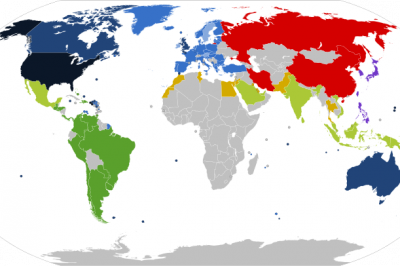The Americas, which include North, Central, and South America, are distinguished by a complicated web of security dynamics and regional alliances that influence the continent’s geopolitical environment.
The Organization of American States (OAS), a regional forum founded in 1948 to foster political collaboration and avert member-state disputes, is central to this complex organization. The Organization of American States (OAS) provides a forum for discussion and cooperation on various topics, from economic development and security to democracy and human rights.
Among the most prominent regional alliances in the Americas is the North Atlantic Treaty Organization (NATO), which has relationships with some Latin American nations while being generally identified with Euro-Atlantic security. These collaborations reflect a rising understanding of how intertwined global security problems are and how collaborative efforts are necessary to find solutions.
In recent years, new dynamics have emerged in the geopolitical landscape of the Americas, one of which is the strengthening of connections between China and several Latin American countries.
Security considerations have been reevaluated due to traditional allies becoming concerned about China’s economic initiatives and infrastructural projects in the region. This changing environment emphasizes how regional alliances are dynamic and how flexible security measures are required.
Furthermore, transnational problems like terrorism, drug trafficking, and organized crime have an impact on the security dynamics in the Americas. To successfully address these issues, cooperation across nations is frequently necessary.
Regional institutions such as the Union of South American Nations (UNASUR) and the Central American Integration System (SICA) are essential to promoting collaboration and handling shared security problems.
Also Read: Navigating Troubled Waters: Houthi Attacks and Maritime Security
The Caribbean Community (CARICOM) was established as a framework for regional integration and collaboration, particularly relevant to the Caribbean region, which faces distinct security issues of its own.
Member states of CARICOM cooperate on natural catastrophes, economic development, and climate change because they understand how their security interests are intertwined.
The Americas are nevertheless subject to tensions and wars despite these cooperative efforts. Political divisions, territory claims, and historical tensions still influence the region’s security dynamics.
For instance, the current Venezuelan crisis has caused regional actors to hold differing views, which makes consensus-based security strategies more challenging to implement.
At last, the security dynamics and regional alliances in the Americas are complex, reflecting the range of interests and difficulties the continent’s countries confront.
While changing geopolitical realities and global concerns require adaptable responses, the OAS and other regional organizations provide a forum for dialogue and collaboration.
Stability and development in the Americas will depend on encouraging cooperation and tackling common security issues as the region works through these problems.

I am Bushra Tahir. Doing BS in International Relations from National University Of Modern Languages ( NUML).








